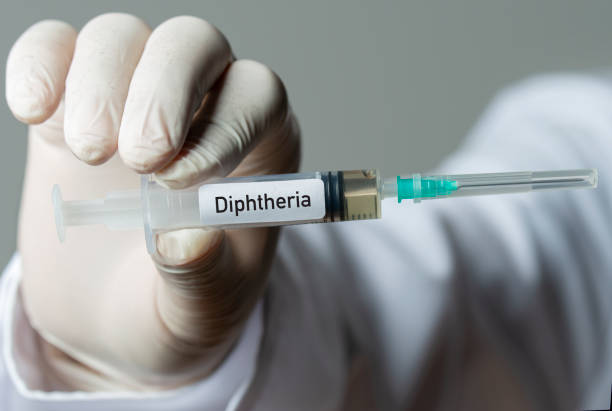Abuja, Nigeria – The Federal Government is in the final stages of establishing the National Diphtheria Laboratory to enhance the country’s ability to conduct preliminary and confirmatory tests for the disease. This development comes as the nation grapples with a concerning surge in diphtheria cases.
As disclosed by the Director General of the Nigeria Centre for Disease Control and Prevention (NCDC), Dr. Ifedayo Adetifa, a total of 13,204 suspected cases of diphtheria have been reported across the country. Out of these, 8,406 cases have been confirmed in 114 Local Government Areas spanning 18 states and the Federal Capital Territory.
Kano state bears the brunt of the disease burden, accounting for 86 percent of the confirmed cases with 7,188 reported instances. Other states affected include Yobe with 775 cases, Katsina with 232, Borno with 118, Jigawa with 23, Bauchi with 20, and Kaduna with 17 confirmed cases, among others.
Disturbingly, among the 8,406 confirmed cases, 6,202, or 73.7 percent, are children aged between 1 and 14 years. Furthermore, analysis reveals that a significant portion of these cases occurred in individuals who were either unvaccinated or partially vaccinated against diphtheria.
Dr. Adetifa stated, “Our records have shown that most of the confirmed cases of diphtheria in the country were unvaccinated against diphtheria. Of the 8,406 confirmed cases, 5,371 (64 percent) are either unvaccinated or partially vaccinated, 966 (11 percent) have an unknown vaccination status, while 2,069 (25 percent) are fully vaccinated against diphtheria.”
Diphtheria is a vaccine-preventable disease caused by a toxin produced by the bacteria Corynebacterium diphtheriae, and it is covered by one of the vaccines provided routinely through Nigeria’s childhood immunization schedule.
In response to the alarming rise in diphtheria cases, the Federal Ministry of Health, in collaboration with the NCDC and National Primary Health Care Development Agency, has been working with affected states to address the outbreaks. The government has also received support from various partners, including the World Bank, the World Health Organization, UNICEF, Médecins Sans Frontières, GAVI, and Breakthrough Action Nigeria.
To bolster the response, the national diphtheria taskforce has deployed National Rapid Response Teams to affected states, assisting with active case searches in communities and health facilities. However, security challenges have hindered some teams’ access to certain locations in affected Local Government Areas.
Dr. Adetifa also highlighted the importance of the laboratory network in managing diphtheria cases. Currently, there are 14 laboratories in the Diphtheria Laboratory Network capable of conducting diphtheria testing, with plans to optimize five additional laboratories at the subnational level. Laboratory personnel have been trained in diagnostic processes, quality assurance, biosafety, biosecurity procedures, and data management.
The establishment of the National Diphtheria Laboratory is nearing completion, marking a significant step’s efforts to combat the ongoing diphtheria outbreak.
The laboratory’s creation is a testament to the government’s commitment to addressing public health challenges. It will play a crucial role in early detection, accurate diagnosis, and monitoring of diphtheria cases, enabling a more effective and timely response to outbreaks.
Diphtheria is a highly contagious bacterial infection that primarily affects the respiratory system and can lead to severe complications, including difficulty breathing and heart problems. Vaccination is the most effective way to prevent the disease, and Nigeria has been actively working to expand its vaccination efforts, especially among vulnerable populations like children.
The rise in diphtheria cases highlights the importance of maintaining high vaccination rates and ensuring that individuals receive the recommended doses of diphtheria-containing vaccines. Public health campaigns and awareness efforts will also play a crucial role in educating communities about the importance of vaccination and early disease recognition.
In addition to vaccination efforts, the government, in collaboration with its partners, is focused on strengthening healthcare systems, improving disease surveillance, and enhancing laboratory capacity to respond effectively to disease outbreaks. The establishment of the National Diphtheria Laboratory is part of this broader strategy to enhance the country’s public health infrastructure.
As Nigeria works towards completing the National Diphtheria Laboratory and expanding its vaccination efforts, it is essential for citizens to remain vigilant and take proactive measures to protect themselves and their communities from diphtheria and other vaccine-preventable diseases. Public health authorities and healthcare providers will continue to play a critical role in ensuring that the necessary resources and support are available to combat the ongoing outbreak and prevent future ones.



